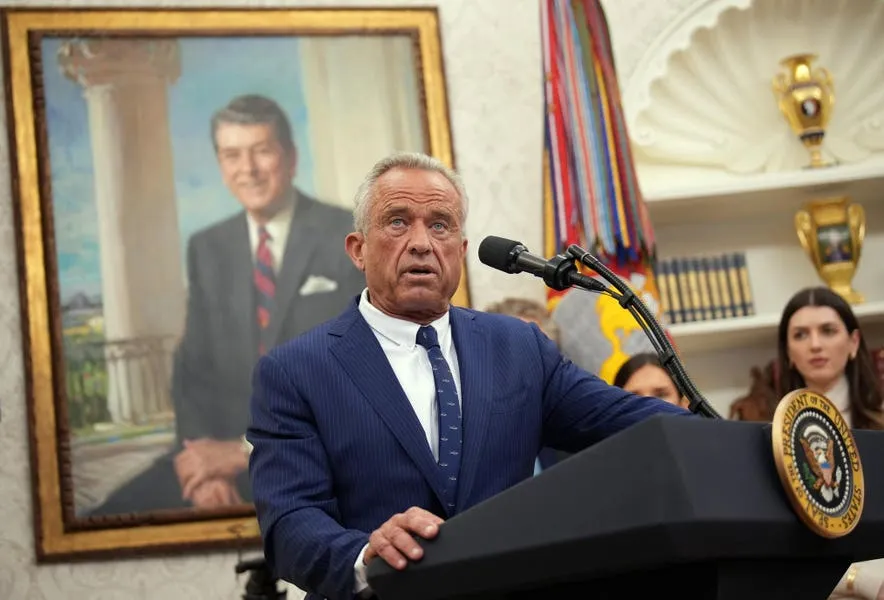Forbes contributors publish independent expert analyses and insights.
The Trump administration's retreat from providing financial support to international health organizations continues unabated. Health and Human Services Secretary Robert F. Kennedy Jr. decided last week that the U.S. will renege on its vow to assist the Global Alliance for Vaccines and Immunization (Gavi) financially. The consequences for children's health worldwide could be devastating.
According to the New York Times, Kennedy has withdrawn a $1.2 billion pledge made by the Biden administration to Gavi until the organization "changes its processes." He claimed that Gavi had "ignored the science" in immunizing children around the world. Kennedy accused the organization of disregarding vaccine safety. In response, Gavi says that it rigorously assesses every vaccine it procures and deploys.
This move by Kennedy follows earlier decisions by the Trump administration to gut the United States Agency for International Development and implement cuts to other international programs, as well as exit the World Health Organization. USAID undertakes a wide range of activities, which include, among other things, food aid and distribution, malaria prevention and treatments and polio vaccinations in countries where the disease is still endemic.
Defunding Gavi constitutes an even more direct challenge to the world's ability to address vaccine-preventable diseases. Gavi is the most prominent procurer and distributor of vaccines to children across the globe.
Estimates indicate that Gavi helped save 1.3 million lives from preventable diseases in 2023, most of whom are children. And since 2000, Gavi has helped prevent a total of 18.8 million deaths. In 2023 alone, Gavi assisted in immunizing 69 million children against diseases, including measles, diphtheria and cholera. Gavi has also been instrumental in the 2024 rollout of the first routine malaria vaccine in Africa.
Despite the decline in deaths and disease burden, tens of thousands of vaccine-preventable fatalities still occur worldwide each year. This means there's more work to do for Gavi and other entities involved in pediatric public health.
In terms of their return on investment in public health, given their relatively low cost and high effectiveness, all childhood and most adult vaccines are estimated to not only be cost-effective but cost-saving, too. Upfront expenditures are offset by costs avoided through disease prevention. To illustrate, the Australian measles vaccination program in the 1980s and 1990s was shown to have a benefit to cost ratio of a staggering 167:1. Such metrics are used to evaluate the overall relationship between the benefits and costs of pharmaceutical interventions. Any ratio greater than one indicates that the benefits outweigh the costs.
As the figure below illustrates, vaccines are credited with saving tens of millions of lives over decades of widespread use, including to prevent diseases such as smallpox, polio, measles, whooping cough, diphtheria, tetanus and others.
Experts are concerned that with the cutoff of U.S. aid there could be a resurgence of avoidable disease outbreaks.
A natural experiment of sorts occurred recently that shows what happens when vaccination levels drop. During the COVID-19 pandemic in 2020 and 2021, measles vaccinations decreased substantially in developing nations. Globally, measles deaths spiked by more than 40% to 136,000 in 2022, mostly in poorer countries.
Alternate funding sources for Gavi include other countries which have pledged to increase their contributions as well as the Bill & Melinda Gates Foundation. Nevertheless, the U.S. withdrawal will leave a gap that will be hard to fill.
